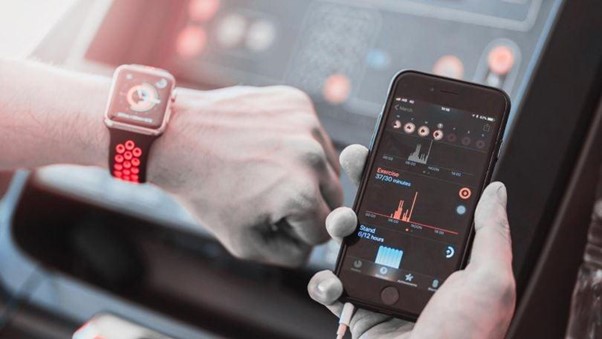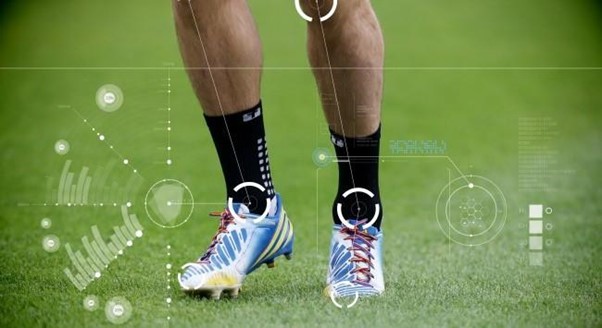
The Future of Coaching: Technological Advances and Evolving Trends
The world of coaching is rapidly evolving with the help of technology, offering new opportunities for coaches and their clients to work together more effectively towards desired goals.
This technology-driven shift has allowed coaches to expand the reach of their practice and provide greater access to resources.
As a result, there is an increased demand for technology-savvy coaches who can provide support in the digital realm.
The Benefits of Technology in Coaching
The use of technology has allowed coaches to maximize efficiency, reach more clients, and create more customized solutions for their individual needs.
Improved Accessibility
Technology has made it possible for coaches to provide their services to clients all over the world, breaking down geographic barriers.
Coaching can now be conducted remotely, via video conferencing, instant messaging, or email. This not only makes coaching more accessible to clients, but it also opens up new revenue streams for coaches, allowing them to reach a wider audience.
Additionally, coaches can use technology to make their services more accessible to people with disabilities, such as visual or hearing impairments.
More Personalized Coaching
Technology can help coaches provide a more tailored coaching experience to clients. With tools like online assessments and surveys, coaches can gather more data about clients’ needs, goals, and behaviors, and create more personalized coaching plans.
Advanced analytics can also be used to track clients’ progress and adjust coaching plans accordingly.
Additionally, coaches can use artificial intelligence and machine learning tools to make personalized recommendations and predictions based on client data.
Enhanced Communication
Technology makes it easier for coaches to communicate with their clients and keep them engaged throughout the coaching process. Instant messaging, video conferencing, and email can all be used to communicate with clients in real-time, share resources, and provide feedback.

Additionally, coaches can use social media and online forums to create communities around their coaching programs, providing clients with additional support and encouragement.
Enhanced communication can also help coaches build stronger relationships with clients, which can lead to better coaching outcomes.
Streamlined Administration
Technology can help coaches streamline their business operations and focus more on coaching. Client management tools, such as online scheduling and billing software, can save coaches time and effort by automating administrative processes.
Online data storage and management systems can also help coaches organize client information, track progress, and generate reports, making it easier to run a coaching business efficiently.
Increased Flexibility
Finally, technology can give coaches more flexibility in how they deliver their services. With online coaching platforms, coaches can offer coaching programs at different price points, allowing them to reach clients with different budgets.
Coaches can also create coaching modules that clients can access at their own pace, providing more flexibility and convenience.
Additionally, digital coaching tools can be used to create a hybrid coaching experience, combining in-person coaching sessions with online resources and tools.
Types of Technological Advances Used by Coaches
Various forms of technology are being used in coaching today, from video conferencing platforms to mobile apps that enable coaches to with clients and provide resources.
Wearable technology
Biosensing wearable tech is taking the sporting world by storm. It provides valuable data such as heart rate, breathing rate, and perspiration level.
This technology has been vital in determining the fitness level of athletes, their recovery time, fatigue levels, and their readiness to compete.

By monitoring training loads and progression in desired metrics, wearable technology helps coaches identify weak areas and optimize training programs.
Virtual and Augmented Reality
Virtual reality (VR) and augmented reality (AR) technology are transforming the game-day experience of athletes across multiple sports.
It helps the athletes make quick decisions, hone their reflexes and reaction times, and improve their skills in a safe and controlled environment.
With the help of VR technology, coaches can create a more immersive and engaging training environment and simulate different game situations.
Video Analysis tools
Real-time video analysis allows coaches to record and view their team’s performance, then analyze and annotate it, extracting data from how their team performs in pressure situations, ball placement, and general awareness.
With slow-motion replay, these tools enable coaches to pinpoint certain areas requiring improvement and address them in subsequent training sessions.
Data Analytics tools
The world of data analytics has opened up new horizons for professional sports coaches, allowing them to manage vast amounts of data and obtain insights that translate into real results.
Sports data analytics includes creating complex algorithms to predict future outcomes and optimizing training schedules.
This technology helps coaches understand the strengths, weaknesses, and tendencies of their team and its opponents.
Athlete Monitoring
Data is king, and one of the most useful types of data for coaches to have is that concerning their athletes’ well-being.

Athlete monitoring tools record sleep, work stress, or jet lag and help the coach make informed decisions about an athlete’s most productive training and recovery times.
By providing the coach with the data he needs to gauge his athletes’ stress and recovery, technology helps the coach make the best decisions about training load and recovery.
Evolving Trends in the Future of Coaching
As technology continues to evolve, so too will the role of coaches. Automation and AI are expected to become more commonplace, allowing for greater customization and better engagement with clients.
Virtual reality and augmented reality may also be used in coaching practices, providing a more immersive experience that can facilitate deeper connection and understanding.
Additionally, wearable technologies and biometric data will also offer coaches more insight into their clients’ physical and mental health, allowing for personalized support plans.
Conclusion
Technology is transforming the world of coaching, offering new opportunities for coaches to better serve their clients.
From improved communication to automated tools that provide customized solutions, coaches are now able to take advantage of technological advances that were previously unavailable.
As the industry continues to evolve, technology will continue to play an increasingly important role in the future of coaching. The technological revolution is upon us, and it’s up to coaches to embrace these changes and stay ahead of the curve.
By taking advantage of the latest advances, coaches can ensure they’re providing their clients with the best possible support and resources.
The future of coaching is exciting, so make sure to stay informed and get ready to take your practice to the next level.
Learn more.